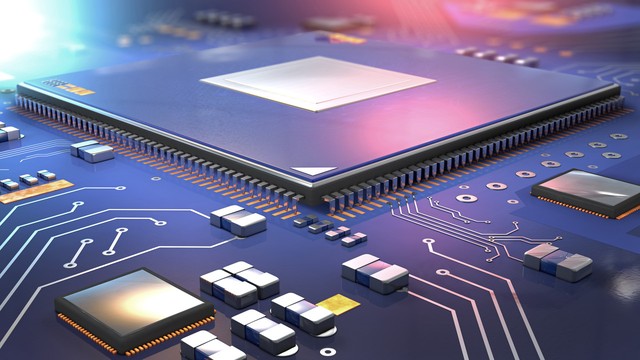Micron curb helps boost security


Security: Export restrictions 'not in interest of any party'
China's law-based decision to ask its critical information infrastructure operators to stop buying products from Micron Technology is a necessary move to safeguard national security and is in line with international practices, officials and experts said on Monday.
The move could reshape the nation's chip supply chains, bringing more opportunities to other competitive domestic and overseas memory chipmakers, they added.
The comments came after the Cyberspace Administration of China said in a statement on Sunday that products of Micron, a United States-based global supplier of semiconductors, sold in China have not passed a recent cybersecurity review, and operators of the country's key information infrastructure should stop purchasing its products.
Foreign Ministry spokeswoman Mao Ning said at a news conference on Monday that the decision is to prevent relevant products' cybersecurity risks from endangering China's critical information infrastructure.
"China is a country of the rule of law. … All enterprises in China should abide by Chinese law in their operations. Judicial authorities will investigate any suspected illegal activities in accordance with the law," Mao said.
"As long as enterprises, regardless of which country they are from, comply with Chinese laws and regulations, we welcome them and their products and services to enter the Chinese market. There is nothing to worry about," Mao added.
The Cybersecurity Law outlines rules safeguarding critical information infrastructure — technology systems in sectors including telecommunications, transportation and defense — that Chinese regulators believe would be vulnerable if they malfunctioned or leaked data, experts said.
Bai Ming, deputy director of international market research at the Chinese Academy of International Trade and Economic Cooperation, said the decision is in line with international practices in terms of placing greater emphasis on cybersecurity.
Countries such as the US are also adopting increasingly tougher security reviews on electronic products concerning data, because data has become a key aspect of national security, Bai said.
The move could profoundly affect Micron's business in China, a market accounting for around 11 percent of its $30.8 billion global sales in 2022, said Xiang Ligang, director-general of the Information Consumption Alliance, a telecom industry association.
"Chinese State-owned enterprises and their affiliates, at least, will stop buying Micron's products. And it could have a broader impact given the clear signal from the statement that Micron's products have cybersecurity risks," said a senior executive of a market research company, on condition of anonymity.
Companies in the Chinese market have already started to avoid buying Micron's products since the government announced in March that the company was the subject of a cybersecurity review, the source added.
Micron said in a statement on Monday that it had received notification of the review result and is assessing the next steps.
Huatai Securities and CITIC Securities both said in research notes that the move will boost demand for the products of Chinese companies such as Yangtze Memory Technologies Corp and South Korean companies such as Samsung Electronics and SK Hynix.
Micron is the world's third-largest maker of DRAM, or dynamic random access memory chips, which are flash memory chips widely used in smartphones, personal computers and servers.
Micron accounted for 22.8 percent of the global DRAM market in 2021, behind Samsung's 43.6 percent and SK Hynix's 27.7 percent, according to market research company IC Insights.
The Financial Times reported in April that Washington had urged South Korean officials to prevent its chipmakers from filling the market void if Micron was unable to sell its chips to China.
Mao from the Foreign Ministry said on Monday that such moves by the US are aimed at safeguarding its own hegemonic interests.
"Coercing other countries to impose export restrictions on China seriously violates the principles of the market economy and international trade rules. … It is not in the interest of any party," Mao said.
Wei Shaojun, a professor of integrated circuits at Tsinghua University, said the reported export restrictions would further accelerate the development of the domestic memory chip sector.
"China's semiconductor industry is on the rise, with an annual investment of nearly $30 billion," Wei said, adding that China is also the world's largest semiconductor market.



































